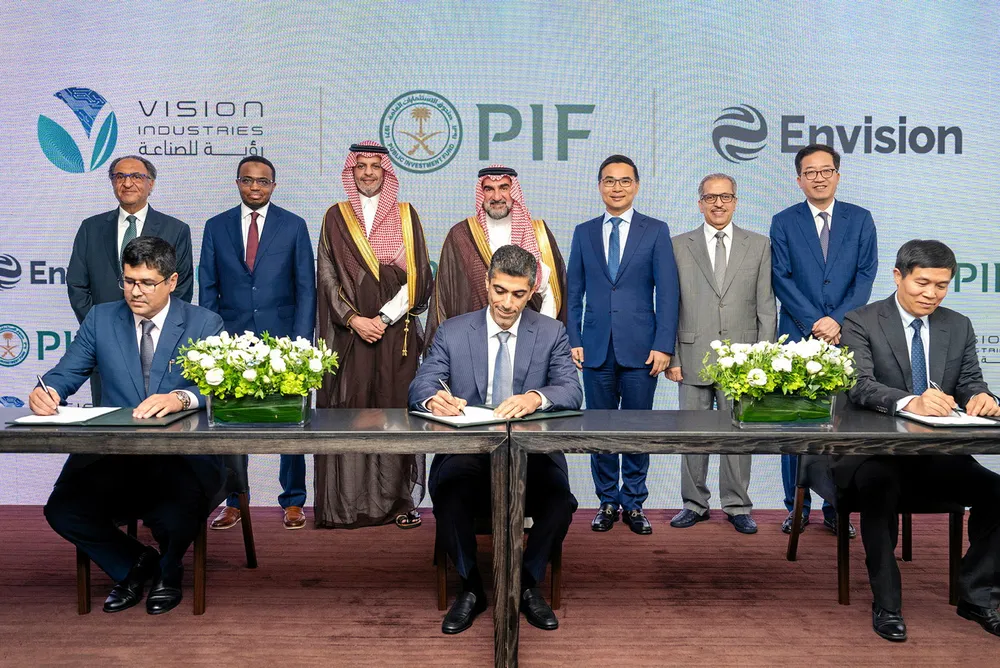China’s Envision links with Saudi Arabia to open wind turbine factory
Saudi sovereign wealth fund strikes major wind and solar deals, although cutting greenhouse gas emissions may not be petrostate's primary interest, warns expert

China’s Envision Energy has entered a joint venture with the Saudi government to build a turbine factory aimed at boosting wind power growth throughout the Middle East.
Envision has entered a three-way partnership with Saudi Arabia's Public Investment Fund (PIF) and Saudi manufacturer Vision Industries.
PIF has in parallel signed deals worth $3bn with two Chinese solar giants, TCL Zhonghuan Renewable Energy Technology and Jinko Solar, signaling that Saudi Arabia is looking to ramp up its so-far negligible renewable energy capacity.
"Saudi Arabia’s own economic self-interests incentivize it to deploy renewables: it has some of the world’s best solar and wind resources, while every barrel of oil it burns for power generation cannot be exported abroad."
"Given these realities, it’s surprising that the Kingdom’s wind and solar deployment has been so anemic to date.”
A signing ceremony for the Envision deal was attended by Envision chair Lei Zhang, PIF governor Yasir Othman Al-Rumayyan and board members of Vision Industries, among others.
Envision said it will hold a majority share in the new joint venture, with its Saudi partners taking the remainder. The factory will produce turbine components including “blades and machine heads,” with the latter possibly referring to nacelles.
Envision has been at the forefront of the global expansion of Chinese wind giants, which amid massive domestic oversupply and white-hot competition at home are increasingly setting their sights on international markets.
The new venture will help Saudi Arabia achieve its goal of localising its wind energy supply chain, said Envision, as well as boosting its green power capacity.
“Chinese green sector companies are eyeing Middle Eastern energy markets for several reasons,” said Webster. “The region’s excellent wind potential – and outstanding solar resources – have yet to be developed, and Chinese firms are highly competitive in these markets.”
Saudi and Middle Eastern markets could according to Webster “rapidly adopt Chinese wind and solar products,” with Chinese firms having “developed commercially appealing products due to genuine technical achievements bolstered by Beijing’s lavish subsidies.”
“It will be difficult for Western wind turbine OEMs to compete with Chinese competitors in Saudi Arabia and the Middle East,” he said.
“Beijing regards the region as strategically important and will likely offer strategic financing for its firms seeking to break into the Middle Eastern market.”
(Copyright)